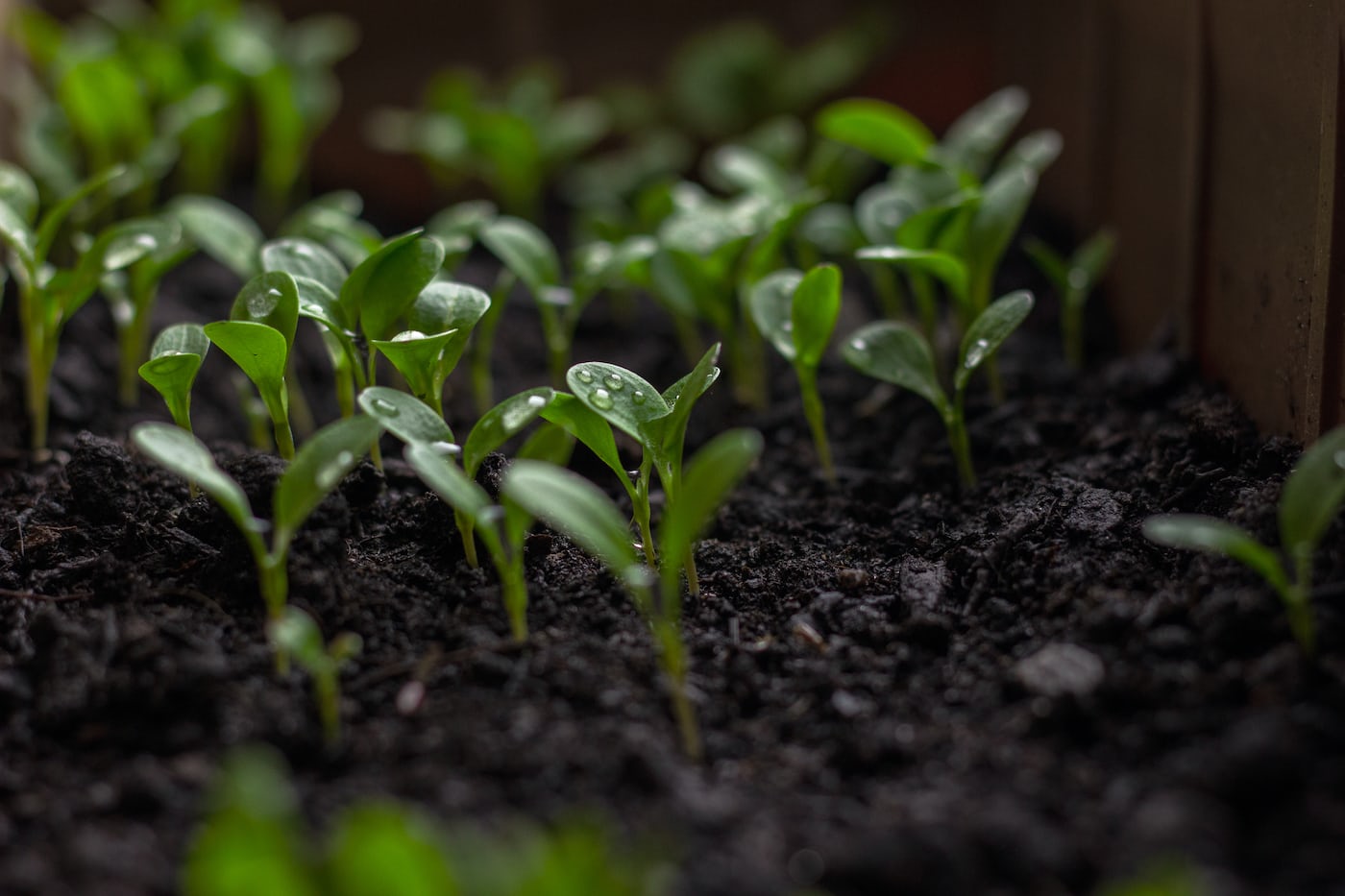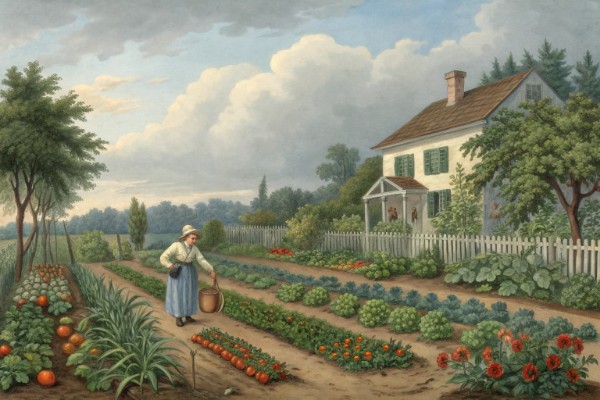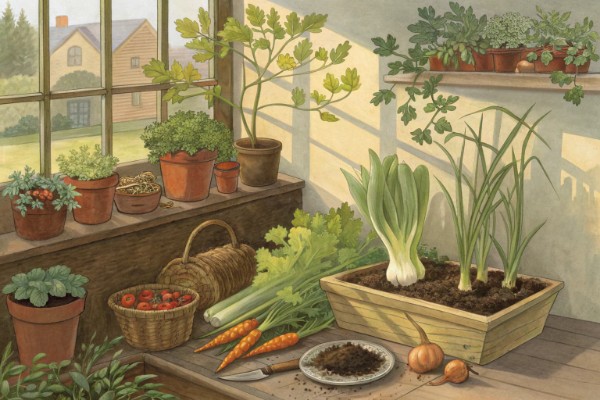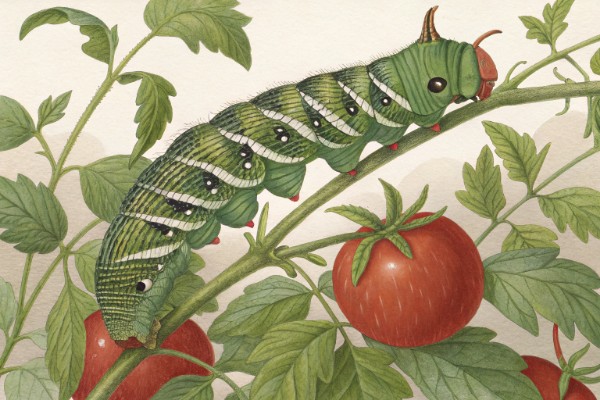Nitrogen Fixing Plants for Naturally Healthy Garden Soil

Nitrogen Fixing Plants
Planting nitrogen fixing plants replenishes your soil naturally, reduces your need for chemical fertilizers, and improves garden productivity effortlessly. These resilient botanical allies—like peas, beans, clover and lupines—breathe life back into tired gardens by pulling nitrogen directly from the air and releasing it into the ground. Ready to give your soil a serious nutrient boost and make gardening easier and more efficient? Let's dig into how nitrogen fixing plants work, how to select the ideal varieties, and how to incorporate them smartly into your garden plan.
Nitrogen Fixing Plants for Naturally Healthy Garden Soil
I started using Nitrogen Fixing Plants in clay that could stall a spade, and within three seasons the soil went from sullen to springy. The trick was picking species like clovers and vetch that feed the soil community while feeding my crops.
What nitrogen fixation really is
Legumes team up with Rhizobium or Bradyrhizobium bacteria, and actinorhizal shrubs and trees team with Frankia. These microbes convert atmospheric N2 into plant-ready ammonia inside root nodules, then a share of that nitrogen enters the soil through nodule turnover and rhizodeposition which is the steady leak of sugars and compounds from roots.
This partnership runs on carbon that the plant trades for nitrogen, so growth rate and sunlight drive the yield. In plain speak, a happy plant fixes more.
Field check in 30 seconds
Pinch off a few nodules, slice them, and look inside. Pink to red signals active leghemoglobin, while white or green means little fixation is happening.
I do this right after first bloom. It saves a season of guessing.
How much nitrogen can you expect
Numbers swing with climate, inoculation, growth stage, and biomass. Here are real garden-scale ranges I see and that align with agronomy references.
- Alfalfa Medicago sativa: about 100 to 250 kg N per hectare per year, 90 to 220 lb per acre.
- Crimson or red clover: about 70 to 170 kg N per hectare, 60 to 150 lb per acre.
- Hairy vetch: about 90 to 200 kg N per hectare, 80 to 180 lb per acre.
- Field pea and common vetch mixes: about 40 to 120 kg N per hectare, 35 to 110 lb per acre.
- Fava bean: about 50 to 150 kg N per hectare, 45 to 135 lb per acre.
- Alder and other actinorhizal trees: about 100 to 300 kg N per hectare per year, 90 to 270 lb per acre.
- Azolla in water systems: about 100 to 300 kg N per hectare per season, 90 to 270 lb per acre.
“Legume cover crops can fix 50 to 200 lb N per acre” — SARE, Managing Cover Crops Profitably
Nitrogen Fixing Plants I trust for common jobs
- Fast spring kickstart for corn and squash: field pea plus oats. Oats prop the peas, then I crimp at pea early bloom.
- Summer living mulch under tomatoes and peppers: white clover. It stays low, feeds pollinators, and sips irrigation.
- Winter cover in mild climates: crimson clover plus cereal rye. Clover fixes nitrogen and rye scavenges leftover nitrate.
- Perennial borders: birdsfoot trefoil where soils run dry. It fixes well without smothering neighbors.
- Orchard alleys: sainfoin on alkaline soils and red clover on loams. Both mow clean and cure beautifully as mulch.
- Wet corner or pond edge: azolla if local regulations allow. It functions like a floating legume with cyanobacteria as the partner.
Timing is everything
Maximum plant nitrogen sits in the canopy at first bloom, then seeds start hoarding it. I terminate legumes at early to mid bloom if I want nitrogen for the next crop, or let them set seed when I want self reseeding and less N release.
Cool soils slow mineralization, so I give residues 2 to 4 weeks to mellow before heavy feeders. Warm, moist conditions around 68 to 86 F, 20 to 30 C, speed the release.
Interplanting that actually works
I thread white clover between brassicas, then slice shallow bands at transplant time to reduce root competition. With corn, I sow a vetch and clover mix after last cultivation, then terminate it low before tassel.
Legumes and mycorrhizae often boost neighbors, yet brassicas are non-mycorrhizal, so I lean a bit more on legume nitrogen near cabbage, kale, and cauliflower. That contrast steers my layout across the bed.
Soil pH, moisture, and temperature targets
Rhizobia like pH 6.0 to 7.0, and they struggle below 5.5. A dusting of finely ground limestone lifts acid spots, and I inoculate again after liming.
Keep seedbeds evenly moist for the first 10 to 14 days. Fixation picks up once soils stay above roughly 50 F, 10 C, and jumps with sun.
Inoculants 101
Use the right inoculant group for your legume genus, since strains are host specific. I keep packets refrigerated, check expiration dates, and coat seed the morning of sowing with a little non-chlorinated water or diluted molasses so the powder sticks.
Granular in-furrow forms shine for bigger plantings, while peat-based powders suit garden drills and broadcast seeding. I avoid mixing inoculant with synthetic fertilizers in the hopper to protect the microbes.
Seed rates and practical setup
- Crimson clover broadcast: 12 to 20 lb per acre, about 13 to 22 kg per hectare, scaled to your bed width.
- Hairy vetch with rye: 15 lb vetch and 40 lb rye per acre, about 17 kg and 45 kg per hectare, tighter rates in gardens with good irrigation.
- White clover living mulch: 3 to 5 lb per acre in bands, about 3.5 to 5.5 kg per hectare, or a pinch per square foot worked into the top 0.5 inch, 1.25 cm.
- Fava beans: 100 to 150 lb per acre, about 112 to 168 kg per hectare, 6 to 8 inch spacing, 15 to 20 cm.
I aim for firm seed-to-soil contact since rhizobia colonize young roots fast. A pass with the back of a rake after seeding pays off every time.
Chop-and-drop, mow, crimp, or graze
Chop-and-drop releases nitrogen faster due to smaller pieces and better soil contact. Crimped mats release slower but give longer weed suppression.
Grazing works beautifully where allowed, yet leave at least 4 inches, 10 cm, of stubble so nodules and crowns rebound. I follow with a light compost dusting to keep biology humming.
Perennial shrubs and trees that fix nitrogen
- Alder Alnus spp. for windbreak edges and quick nurse shade.
- Goumi and autumn olive Elaeagnus spp., check invasiveness with your state or regional list before planting.
- Sea buckthorn Hippophae rhamnoides for sandy soils and edible vitamin-rich fruit.
- Siberian pea shrub Caragana arborescens for cold sites, also check regional weed advisories.
- False indigo Amorpha fruticosa for riparian buffers in allowed areas.
I use these as nurse plants for fruit trees, then thin later to shift fertility toward the crop. Prunings make perfect mulch that recycles captured nitrogen right where you need it.
Ornamental choices that earn their keep
Lupines feed bees and soil at once, and they love sandy banks. Baptisia gives a long-bloom backbone in dry borders, then drops leaves that feed the soil web.
Novel connections that change layouts
Pair legumes with deep-rooted grasses to knit carbon and nitrogen, which steadies organic matter levels. Rye or brome catches soluble nitrate while the legume keeps the tap open, a two-engine system.
In beds where I grow heavy-feeding dahlias, I undersow low clover, then sidedress with the spent clover mulch midseason. Flower color seems richer and the tubers store cleaner.
Compost integration without waste
Legume residues carry a narrow C to N ratio, often near 10 to 20 to 1, so they break down fast. I layer them under browns like shredded leaves to prevent nitrogen loss and keep the pile from slumping.
Common mistakes I see
- Planting into bone-dry dust then blaming the seed. Water deeply before and after seeding.
- Letting legumes set hard seed when the goal was nitrogen for the next crop. Terminate at first bloom.
- Skipping inoculant on new ground and assuming native strains will match. They often do not.
- Working in huge amounts of fresh legume biomass right before seeding tiny crops. Give it a couple of weeks to mellow.
- Planting invasive woody fixers without checking regional lists. Always verify before buying.
Buying guide for seeds and inoculants
I buy fresh seed with a recent test date and a clear lot number, then ask for thousand seed weight so I can calibrate rates. Coated seed flows well, yet I still add the correct inoculant group for insurance.
For inoculants, I prefer sealed packets from reputable suppliers, stored cool, with the host species named on the label. Peat-based products have a distinct earthy smell that signals freshness in my experience.
Cost math that helps choose varieties
If hairy vetch fixes 120 lb N per acre and your fertilizer costs 1.20 dollars per lb of N, the cover crop is doing 144 dollars of nutrient work per acre before counting soil structure and weed control. In beds, the math scales down, yet the value compounds with every season.
Edge cases and climate tweaks
In short seasons, I lean on fava and field peas because they fix fast in cool soils. In hot, dry summers, I pivot to cowpea and sunn hemp, then irrigate during establishment to keep nodulation on track.
Food safety and mulch timing
I keep a 90 to 120 day gap between raw legume mulch and leafy greens harvest, which mirrors produce safety guidance. Compost or aged mulch closes that window faster.
Quick FAQ
Do beans and peas in the vegetable row feed neighbors the same season. A bit through rhizodeposition, yet most nitrogen stays in the plant until residues break down.
Can you overdo legumes. Yes, too much lush green can immobilize other nutrients and invite aphids, so balance with grasses.
Will winter kill help termination. Crimson clover often winter kills near 10 to 15 F, minus 12 to minus 9 C, while hairy vetch survives much colder with snow cover.
Is inoculant safe for pets and pollinators. Used as directed, these soil bacteria target roots, not animals or insects.
Favorite mixes with purpose
- Tomato alley: white clover broadcast lightly after transplant, mow to 2 inches, 5 cm, every few weeks.
- Potato rotation: peas and oats, then flail and hill potatoes into the residue for a soft, fertile bed.
- Fall sowing before garlic: crimson clover, then scalp and tuck cloves through the mat with a dibble.
- Perennial path: microclover dwarf types that tolerate foot traffic and drip edges.
Safety and regulations
Some woody fixers spread aggressively, like autumn olive in many U.S. states. I check state invasive species lists and local bylaws before planting or purchasing.
Anecdote from a tough bed
On a west wall that baked to 110 F, 43 C, every July, sainfoin held green while everything else sulked. I clipped it twice, left the mulch, and the following year peppers finally stopped pouting.
Related products that pull their weight
- Crimper or a dull mower for clean termination at bloom.
- Fresh inoculant matched to species groups like pea and vetch, clover, or alfalfa types.
- Seed rollers or rakes for firming tiny clover seed.
- Soil pH test kit and a small scale for dialing seed rates accurately.
Citations and trusted references
SARE, Managing Cover Crops Profitably, 3rd edition. Their legume nitrogen tables mirror what I see on the ground.
USDA NRCS Cover Crop Termination and Plant Guide. Clear notes on bloom stage and nutrient cycling.
FAO reports on biological nitrogen fixation in agroecosystems. Helpful global ranges for legumes and actinorhizal species.
University Extension bulletins from Minnesota, Penn State, and UC ANR on nodulation, inoculation, and pH effects. These field guides keep the details honest.
Cheatsheet: Nitrogen Fixers for Better Soil
🌱 Top Nitrogen-Fixing Plants
- Legumes: Beans, peas, clover, vetch, lupines, alfalfa
- Trees/Shrubs: Alder, acacia, black locust (Robinia pseudoacacia), sea buckthorn, goumi, Siberian pea shrub
- Mix annuals & perennials for year-round coverage
🛠️ Tools and Products You'll Need
- High-quality seeds or nursery starts
- Spade, trowel, rake
- Inoculant for legumes (helps root nodulation)
- Watering can or hose
- Mulch (straw, leaves, wood chips)
🔄 How-To: Steps to Success
- Assess soil: Choose areas low in nitrogen or rotate throughout garden. Test with kit or look for pale leaves.
- Prep beds: Remove weeds, loosen soil (6-8 in / 15-20 cm deep).
- If sowing legumes, dust seeds with inoculant (1/4 tsp per 1/2 lb).
- Plant: Follow depth/gap listed on seed pack. Example: beans 1 in/2.5 cm deep, 4 in/10 cm apart.
- Mulch lightly: Retain moisture, limit weeds.
- Water: Moist but not soggy. 1 in/2.5 cm/week.
- Support growth: Stake taller varieties, trim to boost regrowth.
- Chop & drop at flowering for most fixation: Cut tops, leave roots to rot in ground. Mulch cuttings over bed for added fertility.
- Rotate: Move annuals each year to cover whole garden in 3–4 years.
🌾 Key Benefits
- Add up to 200 lbs/90 kg nitrogen per acre (fixing rate varies by species)
- Reduce chemical fertilizer usage, improve self-sufficiency
- Boost organic matter, soil texture, drainage
- Enhance biodiversity, pollinator health
- Safe for edible gardens—avoid nitrate buildup
🌞 Pro Tips
- Plant in early spring when soil reaches 45°F/7°C+
- Mix types: combine clover under fruit trees, beans in veggie beds
- Let some legumes seed for natural reseeding
- Maximizing benefit: don’t harvest all tops—some must decompose for soil health
Frequently Asked Questions about Nitrogen Fixing Plants
How do nitrogen fixing plants improve soil quality?
Nitrogen fixing plants partner with beneficial bacteria in their roots, converting atmospheric nitrogen into nourishing compounds plants can absorb. These compounds enrich your soil organically, enhancing fertility without synthetic fertilizers.
What plants work best for fixing nitrogen in my garden?
Popular nitrogen-fixing choices include legumes such as peas, beans, lupines, clover, and vetch. Shrubs like sea buckthorn and alder also naturally enhance soil nitrogen content and adaptability in various climates.
How long does it take nitrogen fixing plants to nourish the soil?
Noticeable improvement typically occurs within one growing season (about 3 to 6 months), but to significantly enrich garden soil, incorporate nitrogen-fixing cover crops consistently over several seasons or annually.
Should I rotate nitrogen-fixing plants annually?
Yes, practicing crop rotation prevents nutrient depletion and disease accumulation. Rotate nitrogen-fixing species yearly with nutrient-consuming crops to maintain soil vitality, balance, and garden productivity.
Can nitrogen fixing plants thrive in colder climates?
Many nitrogen fixers like vetch and certain clover species comfortably tolerate chilly weather, thriving in temperatures down to around 15°F (-9°C). Selecting hardy varieties ensures nitrogen enrichment in cooler regions.
Do all nitrogen fixing plants produce edible crops?
No, while many legumes like beans and peas yield edible pods, other species (e.g., lupines and alfalfa) typically provide soil nourishment rather than harvestable produce. Match plant selection to gardening goals accordingly.
How do I identify nitrogen deficiencies in my garden soil?
Common indicators of nitrogen-poor soil include slow plant growth, pale or yellowish-green leaves, and low crop yields. Incorporating nitrogen-fixing cover crops or amendments alleviates these symptoms naturally.
Nitrogen Fixing Plants quietly work their magic beneath the soil, feeding your crops the slow way—no flashy chemical shortcuts, just honest biology. Add a mix of clover, beans, peas, or vetch to your beds and you’ll see stronger growth, richer color, and fewer hungry pests. Rotate them through your plots and let their roots do the heavy lifting: breaking up hard soil, attracting pollinators, and locking in moisture. Want to skip the synthetic stuff? This is how you build naturally healthy soil—season after season. For those looking to push their garden further, check out the latest innovations in vegetable gardening and get your hands dirty. No gimmicks, just better dirt and better food, all thanks to a few humble plants doing what they do best.
Find out which plants will thrive in your garden!
Answer a few fun questions and get custom plant recommendations perfect for your space. Let’s grow something amazing together!

start your season



